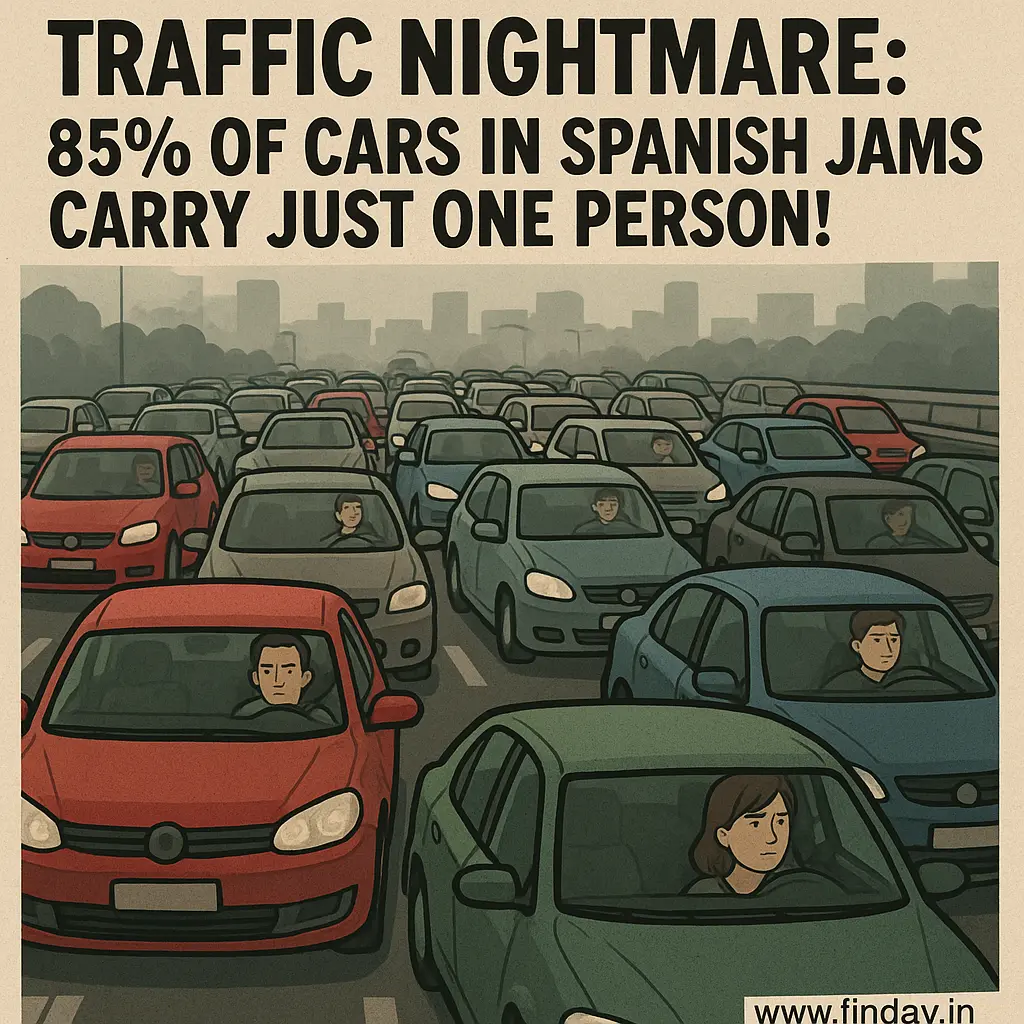Latest News from Spain: Are you tired of endless traffic? Brace yourself for a shocking truth – 85% of vehicles in major Spanish traffic jams have only one occupant. It's time to rethink our commute and reclaim our roads!
Friends and fellow citizens of Spain, are you fed up with watching your precious time vanish into thin air as you sit in never-ending traffic queues? That feeling of helplessness as the clock ticks and your car barely moves is, unfortunately, all too familiar for many of us. But have you ever stopped to consider the real culprit behind this daily nightmare? The latest news and studies are shouting it loud and clear: it's us, driving alone! Yes, the statistic is stark: a staggering 85% of vehicles that choke our main arteries during peak congestion times carry a single passenger. It's almost as if every driver has become their own island on wheels!
Imagine for a moment. Madrid's Gran Vía, Barcelona's Ronda Litoral, the A-7 along the Valencian coast... during rush hour, these roads transform into giant car parks. And in the vast majority of those cars, only one person, engrossed in their thoughts or listening to the radio, occupies the valuable space that could accommodate two, three, or even four more people. Isn't that a disheartening paradox? Hundreds of thousands of vehicles, each with its engine roaring, contributing to pollution and collective stress, all for the convenience (or habit) of solo travel.
This isn't a new problem, but the sheer scale of the impact from single-occupant vehicles is reaching critical levels in Spain. Recently, cities like Madrid and Barcelona have been at the forefront of implementing intelligent traffic management systems, utilizing artificial intelligence to optimize traffic lights and alert drivers to congestion in real-time. There's even talk of banning single-occupant vehicles in highly congested urban areas to ease gridlock, with places like Ibiza and Formentera already introducing charges and access controls to manage summer traffic chaos. The Directorate General of Traffic (DGT) and other authorities are desperately seeking solutions, and it's clear that a fundamental part of the answer lies in a collective change of mindset.
Beyond the Traffic Jam: A Problem with Multiple Ripples
Traffic congestion extends far beyond personal frustration. Its effects are felt in every corner of our lives:
-
Lost Time and Productivity: Valuable hours that could be spent with family, friends, on hobbies, or at work are irretrievably lost in commutes.
-
Air Pollution: Millions of idling or slow-moving cars emit harmful gases that worsen air quality in our cities, impacting our health and the planet.
-
Economic Impact: Delays in deliveries, higher transport costs, reduced efficiency for businesses... heavy traffic slows down the economic engine.
-
Stress and Mental Health: The daily grind of traffic jams contributes to elevated levels of stress, irritability, and fatigue among drivers.
What Can We Do? The Solution is in Our Hands!
We can't just wait for regulations to solve everything. As citizens, we have the power to be part of the solution. Here are some ideas to start unclogging our lives and our cities:
-
Carpooling is Key: This is the most obvious and effective measure. Organize with neighbors, colleagues, or friends who have similar routes. Carpooling apps are available and becoming increasingly popular. You'll reduce fuel costs, emissions, and most importantly, the number of cars on the road!
-
Public Transport: Your Urban Ally: Spain boasts an excellent public transport network in many cities. Buses, metros, and trains are sustainable and efficient options. Leave your car at home and enjoy a stress-free journey, reading or relaxing!
-
Active Mobility: Bike and Walk: For short distances, why not opt for cycling or simply walking? It's healthy, eco-friendly, and allows you to experience the city differently.
-
Flexible Hours and Teleworking: If your employer allows it, consider adjusting your work hours to avoid peak times or working from home on certain days. Flexibility can be a powerful tool against traffic.
-
Smart Planning: Use navigation apps that provide real-time traffic information and suggest alternative routes. A little planning can save you a lot of time and headaches.
The next time you find yourself in a traffic jam, look around. If you see a procession of single-occupant cars, remember: the change starts with each of us. Spain is a vibrant country, and its cities deserve to breathe freely. It's time to stop being islands on wheels and start sharing the ride!
For more news and tips on sustainable mobility, visit www.finday.in


